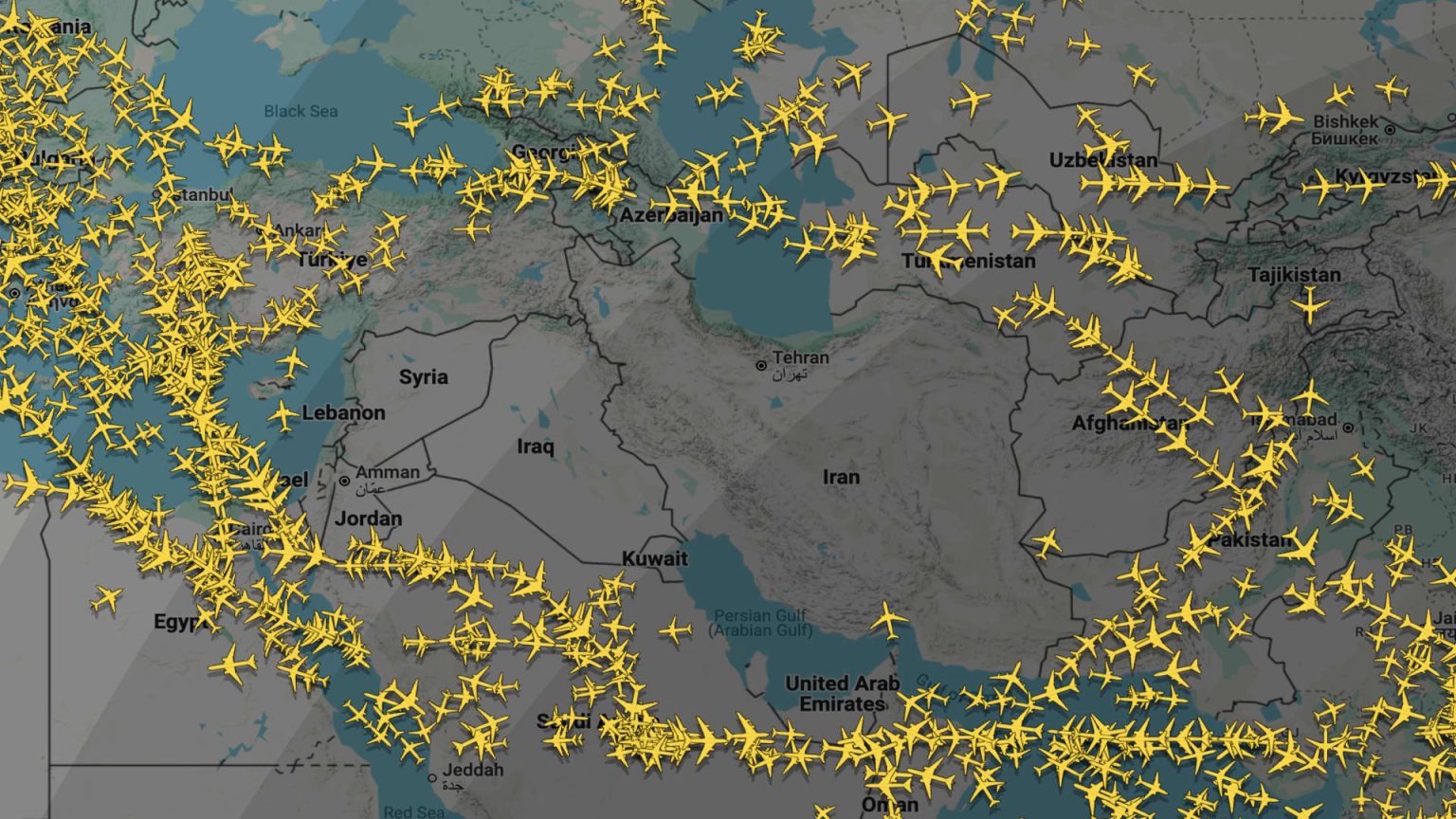In a concerning escalation of military tensions in the Middle East, Iran’s armed forces have launched a missile strike on a U.S. military base located in Qatar. This development has led to a widespread disruption in air travel, as numerous airlines diverted flights away from the region. Consequently, travelers have been urged to stay informed about their flight options as airlines reassess routes amidst ongoing uncertainties.
| Article Subheadings |
|---|
| 1) Airlines Respond to Rising Tensions |
| 2) Flight Disruptions in the Region |
| 3) Impact on Civil Aviation |
| 4) Key Airlines Adjust Operations |
| 5) Broader Implications for Global Air Travel |
Airlines Respond to Rising Tensions
In light of the missile strike ordered by Iran on a U.S. base in Qatar, multiple airlines have taken immediate action to protect passenger safety. Major airlines—among them British Airways—have cancelled flights to Doha through midweek, emphasizing on their official channels that “Safety is always our highest priority.” The airline additionally stated that it is actively contacting customers to inform them about their amended travel options. As tensions continue to rise, airlines are urgently evaluating their operational strategies to navigate the volatile situation.
Flight Disruptions in the Region
Reports from the aviation data firm Cirium indicate that over 20 commercial flights scheduled to arrive in Doha were diverted after the missile incident, with four others bound for Dubai turning back. Flight-tracking services show that airspace over the United Arab Emirates has been officially closed in response to the military strikes, severely affecting regional air traffic. Temporary airspace closures have also been implemented by Bahrain, signaling the proximity of the military conflict and the widespread ramifications it has on civilian aviation. These swift responses highlight the immediate fear and risk associated with flying in a zone of escalating military activity.
Impact on Civil Aviation
The ongoing conflict in the Middle East is a critical concern not just for passengers but also for the civil aviation sector. Airlines are now faced with the dual challenge of maintaining safety and managing escalating operational costs caused by rerouting flights. The repercussions of this conflict come on top of existing challenges due to the unresolved war in Ukraine, leading to prolonged complications for airlines. Flight paths are being adjusted to avoid conflict zones altogether, requiring additional fuel and creating a ripple effect that could lead to increased airfares for travelers as the industry braces for sustained disruption.
Key Airlines Adjust Operations
The situation in the Middle East has prompted not just British Airways but also a host of other major international airlines, including Air France, Iberia, and Finnair, to reconsider their flight schedules. Many have paused plans for resuming services to certain destinations in the region altogether. American Airlines had already suspended routes to Doha prior to the recent missile strike, while United Airlines similarly ceased operations to Dubai amidst growing concerns over safety and regional stability. Such measures reflect the airlines’ heightened commitment to passenger safety while navigating an uncertain landscape.
Broader Implications for Global Air Travel
This sudden escalation in military conflict not only poses immediate risks but also carries long-term implications for international air travel. As airlines adapt to shifting geopolitical climates, they may continue to reassess routes and possibly reevaluate their service offerings to affected regions. Industry experts warn that if tensions in the Middle East persist, airlines will likely incur escalating operational costs and may further delay the re-establishment of routes critical for regional connectivity. This could ultimately lead to a transformation in global air travel practices, with airlines prioritizing safety over profit margins in volatile markets.
| No. | Key Points |
|---|---|
| 1 | Iran launched a missile strike on a U.S. military base in Qatar. |
| 2 | Over 20 flights to Doha were diverted due to safety concerns. |
| 3 | Major airlines canceled or deferred flights to the Middle East. |
| 4 | Airspace above the UAE and Bahrain was temporarily closed. |
| 5 | Global aviation may face long-term impacts due to ongoing regional tensions. |
Summary
In conclusion, the recent escalation in military actions within the Middle East has resulted in significant disruptions to commercial air travel. With various airlines undertaking drastic measures, the implications of these developments are far-reaching. Travelers and stakeholders in the aviation sector will need to remain vigilant as the situation unfolds, with safety concerns driving operational adjustments and postponements in service to vulnerable regions.
Frequently Asked Questions
Question: What triggered the flight diversions in the Middle East?
The flight diversions were primarily triggered by Iran’s missile strike on a U.S. military base in Qatar, heightening safety concerns among airlines.
Question: How are airlines responding to the current uncertainties?
Airlines are canceling, diverting flights, and temporarily closing air routes to safeguard passenger safety amidst the escalating military conflict.
Question: What should travelers do in light of the current situation?
Travelers are advised to stay informed about their flight status and consult with their airlines for options, as itineraries are likely to change in response to ongoing developments.


